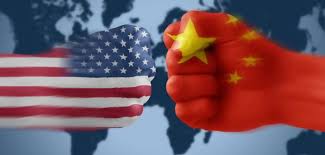A Short History of the U.S. Not Winning Trade Wars

President Trump says that winning a trade war is easy, but a closer look at history suggests otherwise. Of course, the most famous example of protectionism gone awry is 1930’s Smoot-Hawley Tariff Act—which along with similar protectionist measures enacted around the globe—helped torpedo world trade and exacerbate the Great Depression. Since that time U.S. has charted a course toward freer world trade, but when it has unilaterally deviated from that direction, it has usually paid a price.
President Nixon helped usher in the era of stagflation in the 1970s by relying on temporary across-the-board tariffs and currency revaluation rather than higher interest rates and budgetary restraint to stabilize rapidly growing trade deficits with countries like Japan. In 2002, President Bush implemented his own across the board tariffs on steel to protect American companies, but those measures hit fierce resistance by other members of the World Trade Organization, and were quietly lifted without doing much to staunch the loss of steel manufacturing jobs, while hurting job growth further down the supply chain.
The current administration’s proposal takes U.S. trade policy into uncharted waters, says Peter Schott of the Peterson Institute for International Economics, because it is being justified on national security grounds. Though the WTO has always allowed members to institute tariffs to protect national security, these provisions have been little used, for fear that the international body is simply not equipped to decide what constitutes a member country’s national security interests. The tariffs’ underlying justification should be read as a shot across the bow to the WTO itself, Schott says, suggesting that the Trump Administration has “written off” the WTO’s ability to fairly arbitrate trade disagreements.
With the administration questioning the very foundations of a generation of global trade policy, it’s tough to know just how U.S. partners will react, but the European Union’s threat to institute retaliatory tariffs against goods like Kentucky bourbon and Harley Davidson motorcycles, suggests they won’t take it lying down.



